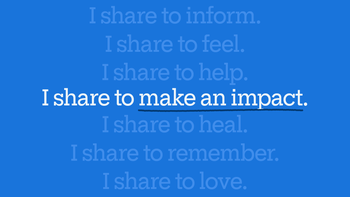
Does Insurance Cover At-Home Colon Cancer Screening Tests?
Key takeaways:
Colon cancer screening can detect precancerous polyps, which can develop into cancer over time, as well as early cancers. These tests can save your life.
Cologuard, a popular at-home screening option, is covered by Medicare, Medicare Advantage, and Medicaid as well as many private insurance plans.
At-home colon cancer tests can be obtained over the counter, online, or from your healthcare provider.

Colorectal cancer is an overgrowth of cells in the colon and rectum, which make up the large intestine. Colorectal cancer is also called colon cancer. Colorectal cancer is the second-most common cause of cancer-related death in the U.S. While new colon cancer cases and death rates have been declining overall, they have increased for people under age 50.
Colon cancer screening is important. Screening can detect blood in the stool and other signs that could be cancer. Earlier detection also can result in more successful treatment.
The Affordable Care Act requires insurance plans to cover colon cancer screening as a preventive health benefit at no cost to people ages 45 to 75.
The U.S. Preventive Services Task Force (USPSTF) and the American Cancer Society recommend starting colon cancer screening at age 45 for people at average risk. The USPSTF recommends that regular screenings continue until age 75.
If you have an increased risk of colon cancer, you may need to begin screening earlier than age 45. Risk factors include a family history of colorectal cancer and inflammatory bowel disease. It’s important to note that inflammatory bowel disease (IBD) is different from irritable bowel syndrome (IBS). IBS is not a risk factor for colon cancer.
A colonoscopy offers the most accurate colon cancer screening, but this isn’t your only option. There are several at-home screening tests available. Some can be found over the counter and online, while others are available from your doctor.
When using at-home colon cancer screening, you should be aware of coverage and costs. If your test is positive, your health insurance may or may not cover your follow-up colonoscopy because the home test counted as your screening. Some states have laws that require plans to cover follow-up colonoscopies at no out-of-pocket cost to you. A follow-up colonoscopy after a home test could be considered a diagnostic procedure, which may trigger your deductible, copay or coinsurance.
What are some options for at-home colon cancer screening?
There are several at-home colon cancer screenings kits. All use a sample of your stool (or poop).
Some at-home tests are available over the counter or online without a prescription. Others require a prescription or must be obtained by your healthcare provider. You send them back to a lab according to the instructions.
There are three types of at-home colon cancer tests:
Guaiac fecal occult blood test: Also known as gFOBT or FOBT, this test uses a chemical called guaiac to detect blood in the stool that may not be visible to the naked eye. The test requires you to collect a small stool sample for three different bowel movements. You use a stick or swab provided in the test kit to take a small sample of each stool and apply it to a test card. The test will have directions and materials for sample collection. You need to stop certain medications (including NSAIDs), vitamin C supplements, and some foods a few days before the test. Taking or eating certain foods and medications can cause false positive or false negative results.
Fecal immunochemical test: Known as FIT, this test is very similar to the gFOBT but only needs one small stool sample. This test uses antibodies to detect irregularities in the stool that could be signs of cancer, including the presence of blood. FIT is used more often than gFOBT because it has better accuracy and is easier to use.
Stool DNA test: This test uses stool to detect the DNA of cancerous and precancerous cells that shed in fecal matter. This requires a whole stool sample but you won’t need to stop medications or food prior to use. The test also checks for blood in the form of hemoglobin (a protein in red blood cells).
How much is the cost of at-home colon cancer screening without insurance?
There are several popular brands of at-home colon cancer tests. Here are some options with their cash prices:
Cologuard: The cost for the test ranges from $581 to $681, depending on when you pay. A call to the toll-free number, 844-870-8870, can get you a $100 discount if you pay in full upfront. Otherwise, the cash price is $681 at the time of this article’s publishing. A Cologuard test requires a prescription from your doctor. This may add to the total cost if you have out-of-pocket expenses for that visit. If you don’t have a provider, you can contact Cologuard’s telemedicine provider for a consultation and prescription for a $30 fee (if the test is right for you). This stool DNA test is for people ages 45 and older who are at average risk for colon cancer. Shipping both ways is included in the price. After you return your kit, test results are sent to your healthcare or telemedicine provider within 2 weeks.
Everlywell: The cost is $49 without a membership. This is a FIT for people 45 and older and is available online and at retail pharmacies including Target, Walgreens, CVS, and Rite Aid. You may be able to get a discount by purchasing online at the company’s site. No food or medication changes are needed. Shipping both ways is included in the price. You can pay for this test with your health savings account (HSA) or flexible spending account (FSA). You will receive your results “within days,” according to the company.
Let’sGetChecked: The cost is $69 for a one-time purchase. This is a FIT available online. This test requires a stool from a fasted state (no food) before 9 AM and mailed immediately. Samples should not be taken or mailed on Friday, Saturday, or Sunday. Results are available online in 2 to 5 days. Shipping both ways is included in the price. You can pay for this test with your health savings account (HSA) or flexible spending account (FSA). Health insurance is not accepted.
Pinnacle BioLabs: The cost is $24.99 for 1 test and $29.99 for 2 tests. This FIT has no diet or medication restrictions. You receive results at home in 5 minutes. This test is available through online retailers and at retail pharmacies including CVS and Kinney Drugs. You may be able to get a discount by purchasing online at the company’s site.
Pixel: The cost is $89. This is a FIT offered by LabCorp. Test kits are available for online purchase only. The kit is for people ages 18 and older and requires no special preparation for use. No doctor visit is required. Kits ship in 1 or 2 days. Shipping both ways is included in the price. Results can be accessed online. You can pay for this test with your health savings account (HSA) or flexible spending account (FSA).
Does private insurance cover at-home colon cancer screening?
The Affordable Care Act requires insurance plans to cover colon cancer screening as a preventive health benefit at no cost to people ages 45 to 75.
Most at-home colon cancer screening tests are not covered by private insurance. Many private health insurance companies will cover costs associated with the Cologuard at-home test. Contact your health insurance company for specific information about coverage for Cologuard.
Does Medicare cover at-home colon cancer screening?
Medicare Part B began covering the cost of at-home multitarget stool DNA tests in 2014. The decision specifically named the Cologuard test. The tests are covered every 3 years with no copay or deductible for eligible enrollees who:
Are age 50 to 85
Have no signs or symptoms of disease
Have an average risk of developing colorectal cancer
Medicare Advantage plans will cover Cologuard costs, too.
Does Medicaid cover at-home colon cancer screening?
Usually. Most eligible Medicaid enrollees can access Cologuard with no out-of-pocket costs — unless your plan requires a copay.
Can my costs for colon cancer screening increase after taking an at-home test?
Yes. If your test is positive, you may need a follow-up colonoscopy.
Without insurance, a colonoscopy can cost more than $1,000. Even with insurance, your plan may not cover your follow-up colonoscopy because the home test counted as your screening. Some state laws require plans to cover follow-up colonoscopies at no out-of-pocket cost to you. A follow-up colonoscopy after a home test could be considered a diagnostic procedure, which may trigger your deductible, copay, or coinsurance. Contact your insurance company ahead of time about potential out-of-pocket costs.
The bottom line
Colon cancer screening can save your life. Colonoscopy is the most accurate screening tool, but at-home tests are reliable alternatives. The Affordable Care Act requires insurance plans to cover colon cancer screening as a preventive health benefit, at no cost, to people ages 45 to 75. Most at-home tests are not covered by private insurance but cost less than $100 and are available over the counter or online. Cologuard is covered by Medicare, Medicare Advantage, and Medicaid as well as many private insurance plans with no out-of-pocket costs.
It is important to understand your insurance coverage if you begin with an at-home test and have a positive result. That test may count as your screening, which means your follow-up colonoscopy could cost you more out of pocket.
Why trust our experts?



References
American Cancer Society. (2020). Can colorectal cancer be prevented?
American Cancer Society. (2021). Insurance coverage for colorectal cancer screening.
Centers for Medicare & Medicaid Services. (2014). Screening for colorectal cancer - Stool DNA testing.
Cologuard. (n.d.). Cologuard and insurance.
Cologuard. (n.d.). Effective and easy screening.
Everlywell. (n.d.). Preventative colon cancer screening from home.
LabCorp OnDemand. (n.d.). Colorectal cancer at-home test.
LetsGetChecked. (n.d.). Colon cancer screening test.
Medicare.gov. (n.d.). Multi-target stool DNA tests.
National Cancer Institute. (n.d.). Cancer stat facts: Colorectal cancer.
National Human Genome Research Institute. (2020). Deoxyribonucleic Acid (DNA) fact sheet.
Pinnacle BioLabs. (n.d.). The world's most advanced colon cancer test.
Siegel, R. L., et al. (2020). Colorectal cancer statistics, 2020. CA: A Cancer Journal for Clinicians.
U.S. Preventive Services Task Force. (2021). Colorectal cancer: Screening.

























